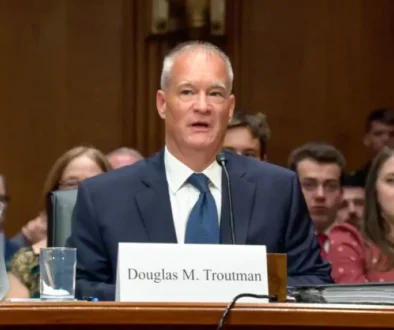Syngenta closer to settling thousands of US paraquat lawsuits
Listen to the audio version of this article (generated by AI).
Syngenta is another step closer to potentially putting an end to thousands of lawsuits brought by people blaming the company’s paraquat weed killer for causing Parkinson’s disease.
After signing a preliminary agreement with plaintiffs’ attorneys in April, the company now has in place a signed “Master Settlement Agreement”, according to a recent court filing.
Within 60 to 90 days, the two sides plan to present plaintiffs with a payout schedule showing the range of estimated settlement amounts to be offered. Plaintiffs will then be able to opt in or out of the settlement, Khaldoun Baghdadi, one of the lead attorneys for the plaintiffs, said in a court hearing in Contra Costa County Superior Court on Wednesday.
“There is a budgeting process that is underway. We’re moving as fast as we can,” Baghdadi told the court. “There are several thousand cases at play.”
In response to a question by Judge Edward Weil, Baghdadi acknowledged it is likely not all plaintiffs will agree to the settlement, and will continue to pursue taking their cases to trial.
“It is our hope that as many people who want to, do so, to get some compensation sooner rather than later,” Baghdadi said.
The parties have hired both a settlement administrator as well as a lien negotiation administrator to help with the process of paying plaintiffs.
Syngenta did not respond to a request for comment.
There currently are more than 6,700 US lawsuits pending against Syngenta that accuse the company of failing to warn paraquat users of risks that exposure to the weed killer could cause the incurable brain disease known as Parkinson’s. The plaintiffs claim the company engaged in a scheme to suppress knowledge about the chronic risks of paraquat exposure.
A trial is currently set to begin in Philadelphia on October 6, but many observers are skeptical that it will take place. The company settled a case that had been set to start last week, and has settled other cases rather than go to trial on the allegations.
Paraquat was introduced in the 1960s by a predecessor to the giant global agrochemical company Syngenta, which is now a Chinese-owned entity. The herbicide has become one of the most widely used weedkilling chemicals in the world, used by farmers to control weeds before planting their crops and to dry out crops for harvest. In the United States, the chemical is used in orchards, wheat fields, pastures where livestock graze, cotton fields and elsewhere.
Syngenta has always maintained that the evidence linking paraquat to Parkinson’s disease is “fragmentary” and “inconclusive.” But numerous scientific studies have found that paraquat damages cells in the brain in ways that can lead to Parkinson’s.
And many of the company’s internal documents show it was aware of research connecting paraquat to Parkinson’s disease decades ago.
The New Lede, in conjunction with The Guardian, obtained and revealed many of those internal files, and maintains a library of some of the documents.
Not only was Syngenta aware of research linking paraquat to Parkinson’s but it also sought to secretly influence scientific information and public opinion regarding those links, the internal corporate records show.
Syngenta’s efforts to settle the lawsuits over paraquat come as the agrochemical industry is pushing for federal and state legal protections that would sharply limit similar future litigation. The legislative push is being led by Bayer, the maker of glyphosate-based Roundup and other herbicides. Bayer inherited more than 100,000 lawsuits alleging glyphosate herbicides cause cancer when it bought Monsanto in 2018. And though Bayer has paid billions of dollars in settlements and jury awards, that litigation persists.
(Featured photo by Getty Images for Unsplash +.)




